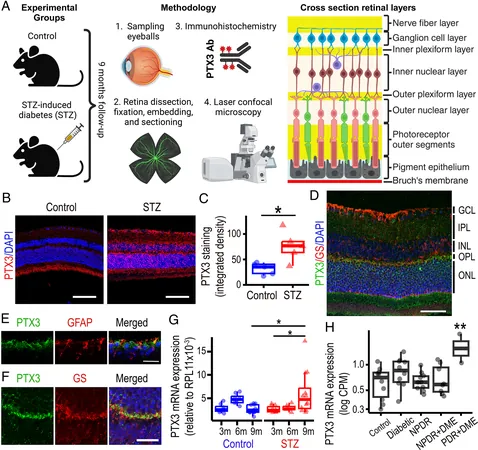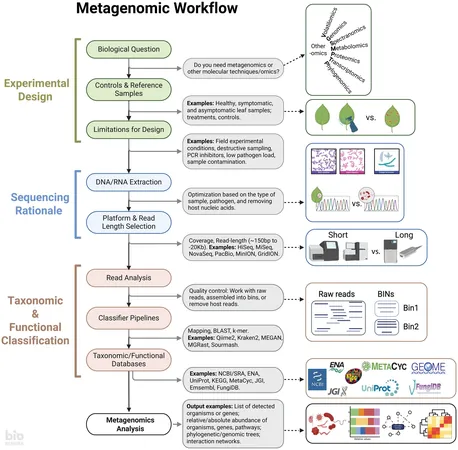
Breakthrough Discovery on Diabetes and Vision: New Hope for Prevention and Treatment!
2024-10-03
Breakthrough Discovery on Diabetes and Vision: New Hope for Prevention and Treatment!
A groundbreaking study recently published in the *Proceedings of the National Academy of Sciences* has unveiled crucial insights regarding the protein Pentraxin 3 (PTX3) and its role in diabetic retinopathy, one of the leading causes of blindness and visual impairment among diabetes patients.
The research highlighted that PTX3 acts as a catalyst for sterile inflammation within the diabetic retina. Astonishingly, diabetic mice that lacked this protein showed remarkable resilience against vision impairment linked to their condition. This significant finding raises hope for future therapeutic interventions.
Conducted across three prominent institutions—Queen's University Belfast, Humanitas University Milan, and the University of Liverpool—this comprehensive study utilized various in vitro and in vivo models. Researchers observed that the retinas of diabetic mice devoid of PTX3 demonstrated reduced inflammation and vascular degeneration. The analysis revealed PTX3’s effects on several cell types associated with diabetic retinopathy, such as Müller cells, astrocytes, microglia, retinal endothelial cells, and neural cells.
Professor Reinhold J. Medina, the corresponding author and Chair of Vision and Vascular Science at the University of Liverpool, emphasized the significance of these findings, stating, 'Identifying PTX3 as a new molecular target in the diabetic eye opens up avenues for developing therapeutic strategies aimed at inhibiting its accumulation in the retina.'
He added, 'The remarkable discovery that the absence of PTX3 protected the retinas of diabetic mice from deterioration was derived from a long-term, nine-month study. While our findings are promising, it remains to be seen whether these results can be replicated in human cases, necessitating further investigation into the intricate molecular signaling pathways influenced by PTX3.'
Initially, the research team operated under the hypothesis that PTX3 was beneficial to diabetic retinas. However, as the study progressed, they were compelled to reconsider this assumption, discovering instead that PTX3 aggravates the disease process. Professor Medina noted the rigor and quality of the research data that led them to embrace this unexpected revelation about PTX3.
Dr. Lucy Chambers, Head of Research Communications at Diabetes UK, expressed her enthusiasm for the potential impact of this research: 'Vision complications are a terrifying yet common consequence of diabetes. By identifying a new contributor to eye damage, this study may pave the way toward innovative treatments that help countless people manage their diabetes without the looming threat of losing their sight.'
Stay tuned as researchers embark on developing targeted therapies against PTX3, potentially transforming the landscape of diabetic eye care and offering renewed hope to millions affected by diabetes!






 Brasil (PT)
Brasil (PT)
 Canada (EN)
Canada (EN)
 Chile (ES)
Chile (ES)
 España (ES)
España (ES)
 France (FR)
France (FR)
 Hong Kong (EN)
Hong Kong (EN)
 Italia (IT)
Italia (IT)
 日本 (JA)
日本 (JA)
 Magyarország (HU)
Magyarország (HU)
 Norge (NO)
Norge (NO)
 Polska (PL)
Polska (PL)
 Schweiz (DE)
Schweiz (DE)
 Singapore (EN)
Singapore (EN)
 Sverige (SV)
Sverige (SV)
 Suomi (FI)
Suomi (FI)
 Türkiye (TR)
Türkiye (TR)